To Celebrate the 75th Anniversary of Sadhana Weekly, we had a rendezvous with India's 17th Chief Election Commissioner (CEC) Dr. S. Y. Quraishi on 13th August 2023. He candidly spoke about his experiences in the IAS and his tenure as the CEC and his post-retirement research about Democratic and Electoral procedures around the world and Status of Muslim community in India.
As the Loksabha Elections kick-off, we bring you facts and opinions from the Chief Election Commissioner about electoral procedures. It's an in-depth interview which we will bring to you in two parts. The first part today, will give us glimpses from his formative years, his choice of joining the Indian Administrative Services, and his Youth-oriented initiatives.
Born in 1947, Dr. S. Y. Quraishi is now 77 years old. The first 25 years of his life were formative, spent in education and youth activism, forming perspectives. He spent more than three decades in the Indian Administrative Service (IAS). After that, he spent five years as the Election Commissioner and Chief Election Commissioner. After retirement, for the last ten years, he conducted research and fieldwork on elections and democratic processes worldwide, and the Muslim community's life in India. On the occasion of the 75th anniversary of Sadhana, a detailed interview was conducted with him on August 13, 2023, in Pune.
Question- The book "An Undocumented Wonder" is dedicated to your father, Maulana Jubair Quraishi. You mention that like you, he also received education from St. Stephen's College. What contribution has he made to your overall development?
-" Weekly Sadhana" is celebrating its 75th anniversary, and I wish to congratulate its editor, Vinod Shirasath, first. Continuing for 75 years as a dedicated weekly is a significant achievement. Despite many governments coming and going, Sadhana has kept its voice of reason constant, making it deserving of our congratulations.
I feel bad that I don't speak Marathi. I only know a couple of phrases. I learned them in childhood. The first is "want it soon," and the second is "I like you." I've memorized the second phrase in various languages. Even in Nepali. The girl, I used these words first for, is now my wife.
Coming back to your question, I was pleasantly surprised to see this question in your proposed agenda for this interview. My father grew up in a religious family. We have a known lineage of 34 generations. Among them, are many renowned Islamic scholars. Some have written 30-30, and 50-50 books. My father was the first in the family, who sought an admission to St. Stephen's College. At that time, it was recognized as a missionary college. The local community of Muslims boycotted our family claiming that we were turning away from our own religion. He endured all the censure, but he became our bridge to the large world. He established a tradition. His financial situation was not good. Intellectually, our family was in a high position, but financially we were weak. We were a large family. I was the fifth son. My parents did not believe in family planning, butI have advocated Family Planning in my book "Population Myth."
My father held education in high respect. He started a school. In it, he taught English grammar. Once English grammar was mastered, everything else would fall into place. At that time, many families in Old Delhi used to be poor. My dad tutored children from those families., I remember my father telling people, “Hundred rupees for an hour” Hundred Rs. For an hour’s tuition in 1960! He actually charged Rs. 100 per month, for a tuition of 1 hour every single day of the month. If someone had two children, he would take fifty rupees each. His motto was - The more children benefit from education, the better. In that period, there was a severe illiteracy problem, and everyone needed education. Those who had a desire learn, brought other children with them and such students' fees were reduced.
Thanks to my father's efforts, we all siblings were able to get an education up to M.A. He always expected us to give our best to everything we do. BI have dedicated the book to him for his love of excellence. I am delighted that you have noticed it. You are, in fact, the first to have acknowledged it. Thanks to you, I have had an opportunity to remember my father.
Question: You grew up in the Nehruvian era. India was growing into a hub of modernity through socialism and secularism. How did all this affect your upbringing?
-It had a good impact. We are residents of old Delhi. My family had been in Delhi for over 500 years. The house we lived in is nearly 200 years old. It is very close to the Jama Masjid. My sister and brother still live there. Many Hindu families lived nearby. Their children used to play with us. Playing and studying with those children benefited us and vice-a-versa. Our life was simple and there was harmony. If they hurt, then it was natural for us to be troubled by their pain.
Later strange things began. Once in every 2-3 years, there would be an explosion somewhere, a bomb would go off, or some communal incident would occur. Then several Hindu families would move elsewhere. Hindu Shopkeepers, and their children; were our friends. It pained us when they left the neighbourhood. Their departure created many practical difficulties for us because we used to buy things from their shops. Gradually polarization increased. Thankfully, at that time, it was not as fast as today, but sadly it kept growing.
Question - When you passed the UPSC exam, Indian Foreign Service (IFS) was preferred by toppers to Indian Administrative Service(IAS). It was the pre- economic liberalization time. People got limited opportunities to travel abroad. UPSC Toppers had it easy, comparatively. Still you chose the IAS over IFS. Any specific reason?
- There was no background of the Civil Services in the family. My father was a teacher, Brothers were professors, and both my sisters were schoolteachers. I was teaching in a college myself. The atmosphere at home was educational. I was one of the school toppers. My elder brother was highly educated. He held PhDs. He felt that I should go to the IFS. That was the first time I had heard about the IFS.
Earlier, I studied at an Anglo-Arabic school. It was considered a traditional school. It was established in 1692. The principal was an Englishman. Just like Sadhana Weekly, that school continues to run continuously till date. From there, I went to St. Stephen's College. There was a special reason for going there. I scored well in Commerce and Economics. I got a distinction. Everyone urged me to become a Chartered Accountant. But when I went to St. Stephen's, I realized they did not Commerce studies. I started the Honors course in History. I had never studied history before, but I secured an Honors degree in History. The History Honors class at St. Stephen's was considered the nursery for UPSC. About 80 to 90% of the students there would go to IAS or IFS. Everyone was preparing for Civil Services. It was a great influence on me, I was in the company of good people. I was inspired by them. But still at that time I didn't have the desire to join the IAS.
I started as a lecturer at 'Delhi College'. This college is over 300 years old. It also has a very long history. Later, it was renamed 'Zakir Hussain Delhi College'. I taught there for two years. I had studied high-level History at St. Stephen's. But at Delhi College, I had to teach very basic history, and I was not happy about it. However, everyone around me said, 'You've become a lecturer, that’s a great career, what else do you need?' So, in the first year, I remained content. But soon I realized that by teaching General History, my own standards would drop significantly. Then I decided that I could join the IFS or IAS.
Vinod Roy, Vishwanathan were my colleagues at the Delhi College. The three of us took the exam at the same time. Only I passed. The following year, both of them joined the Central Services and then the IAS.
Besides, ours was a night college. Classes were conducted for only two hours every evening. Many colleagues took other jobs during the day. Being full-time employees of the college, moonlighting was not legal. They should have engaged in research, skill development or studies. I decided to fill my days with studying for the UPSC exam.
Circling back to your question, 'Why IAS, why not IFS?' This is a very long story. In our time, there were only 5 or 10 seats for IFS. Usually, toppers would go there. My rank was 38. I was not a topper, but I was eligible. But for the past 23 years or so, even though there have been top ranks like 20, 55, and 70, people are not opting for IFS. The 71st person chose IFS. Its popularity has decreased. Why? Because people have seen the power of IAS. The power lies in the field. It is the power of the Collector, the SDM. Secondly, the meaning of IFS is not just New York, Paris, or London, but also Angola, Mali, and Timbuktu. There, your life is unstable. Children go to 20-20 schools. That’s nobody’s definition of life abroad. And, back in the day, an imported transistor in a household would cause a ripple of excitement. Now, imported things are easily available. So there is no craze of life in a foreign land.
For the past two years, I've been conducting mock interviews for "Byju’s." We noticed that everyone aspires to join IAS. We ask, “Why didn't you choose IFS? Many answer, 'Our financial situation at home is not stable.' We can easily figure that they are lying. Because what they say lacks logic. Truth is that the power, the charisma that IAS holds, are unique. If I get reborn, I will choose IAS again. Because in IAS, your functional area changes every five years. You keep learning something new. Today you work in the Agriculture Department, tomorrow in the Health Sector. in IT, in Industry, and so on! If you stay in the same department for 35 years, you will become stagnant. I understood that I must equip myself with working knowledge of all the functional areas that I work in, not just to earn respect of my colleagues, but to be able to review problems and systems comprehensively.
When I started working as the Director-General of NACO (National AIDS Control Organization). I asked for only two probationary days. Third day onwards, I was accountable! I actually knew the urgency and intensity of the matter well, as previously, I was the Joint Secretary of Youth Affairs. Before NACO was established, the Youth Affairs Ministry had started a program through universities in 1991-1992. Its name was 'University Talk AIDS'. It was. At that time, people did not know much about AIDS. They hesitated to talk. In that situation, we organized a competition among students. They designed posters, logos, and slogans, even selected the name and the UTA campaign was born.
In the initial days, NACO earned name and fame by using our students’ posters and slogans. Later they started funding us. But the original idea was ours.
My point is, there are many opportunities to learn, grow and explore in the IAS. If you are in the police department or in the Income Tax department, you keep doing the same thing through your career. IFS is also in a way the same. Only IAS has variety. That's the beauty.
Question: What more can be said about the UTA program? It had been implemented in more than 300 universities, right?
-Yes, initially it was implemented in 270 universities. The main goal was to provide students with information about AIDS. But no speeches were given. Speeches are boring. We gave them a dialogue program. We told them to explore, search, revise, discuss, make posters, slogans and jingles. 31,000 students participated. We didn't need to teach them; they were teaching themselves. They were educating each other.
I remember a boy from Bihar wrote a slogan, 'Darna nahi Samajhna hoga!’ (Don't be afraid, you must understand!) At that time, everyone was terrified of AIDS. Doctors wouldn't even touch patients with HIV. In such a situation, we needed to explain to people the seriousness of it and also to dispel their fears. The boy's slogan was impactful. We used it for the UTA program. The UTA program was so effective that it was accredited among top 10 quality activist movements in the world.
.jpeg) (A still from the Interview - Dr. Quraishi with Interviewer Sankalp Gurjar)
(A still from the Interview - Dr. Quraishi with Interviewer Sankalp Gurjar)
Question: You were the director of the Nehru Youth Centre, and then you became the Secretary of the Ministry of Youth Affairs. Later you worked with youth at NACO. After that, you became the Election Commissioner, and then you focused on young voters. Any specific reason for focusing on youth?
-This is a very good question. I had mentioned earlier that the specialty of the IAS is our adaptability! We are sensitized in one area, then we move on to enrich others. Earlier when I was in the Ministry of Social Welfare, Margaret Alva and Rajiv Gandhi had started a new department called 'Women and Child Development'. I became its director. Then I became sensitive to gender issues. I remember, my wife used to do household chores all by herself. (At that time, the salary of IAS officers was also low. We were not rich. After the Sixth Pay Commission, the situation changed slightly.) One day my wife was not feeling well, she told me to hang clothes for drying on the roof. Feeling a bit embarrassed, I went to the terrace. I ensured no one was watching, hastily hung the clothes and came downstairs. I went back the next day. But that day I gained some confidence. On the third day, when I went, I was hoping someone would watch me and compliment me for being a caring husband who helps with household chores. That is when my perspective changed. I became sensitive to gender issues.
My Ph.D. research topic is gender differences. I go everywhere with that sensitivity now. I was in the steel industry. While in Mumbai, we asked lyricist Nida Fazli to write a ghazal which honoured daughters and women in general. The song was called "Betī" (Daughter) Penaz Masani sang it beautifully. I organized a grand concert for Penaz Masani. At that time, there were 11 steel plants across the country in my work area. I conducted the 'Gender Sensitization' activity in my area of jurisdiction. It was something that I could bring to the table, which I had learned elsewhere.
I was the Secretary of Youth Affairs for five years. There I had the most exposure. Simultaneously, I was given additional charge as the director of the Nehru Youth Centre. In my jurisdiction, there were three lakh youth clubs. At that time, the atmosphere in Punjab and Kashmir was disturbed. Therefore, many public activities were restrained. But the activities of the youth club were off the radar. There was no external contact in Ladakh, Kashmir, Manipur, or Nagaland, but the work of the youth clubs kept going on in the villages. I was director of the NYC for four years during that phase. It was a very interesting experience.
We had to drive family planning, of course we had to speak to the youth! We used to tell them, 'Get married late, don't rush into having children. Keep distance between kids.' Our message was spreading properly. This turned out to be a good program for us. I am proud to be a part of it.
While working I realised that at that time, 70% of the population in the country was under 35 years old. But they are not politically important. Rajiv Gandhi gave importance to the youth. Then V.P. Singh, and now Narendra Modi. No one else cared.
I was the head of the NSS. My program advisor was Prof. Raju. Whenever I had questions, he would delegate his deputy Dr. Bhagwan Prakash. his advice helped me. Then I thought, it would be better to directly deal with him. He was a Gandhian, an English language professor in Orissa. I appointed him as the program advisor. Then I went to NACO, youth clubs, election commission. Wherever I went, I took him with me. The UTA program was also designed by him. He was very talented. I respect him a lot. Technically, I was his boss, but in reality, he was my guru. I have openly acknowledged this. He is the ghostwriter of my book 'An Undocumented Wonder'. He inspired me. He penned it, endured when I made modifications 20-20 times.
When I went to the Election Commission, I noticed the invisible component of women. AT the time India’s sex ratio was 940 women per 1000 men. in the election process, women were even less involved. 700 women per 1000 men. Millions of women were simply invisible. We ordered all the district magistrates in the country to find them. The gender ratio is 940, so their participation in the elections should match the proportions. Now this number is 930-935. Young adults knew the importance of 18 years. Getting driving license, riding motorbikes, or watching adult movies. They did not recon that they would get a political power, the right to vote.
On September 25, 2010, there was a small meeting of the civil society in Bhubaneshwar, Orissa. There were 50-60 people present. During the meeting, a person raised his hand and said, "Being 18 years old is very special; it should be celebrated." I thought this was a very good statement. I told Bhagwan Prakash that he should prepare a program for the next week. That's when the idea of 'National Voters Day' was conceived. Every year on 1st January a new electoral roll is prepared. All youngsters who turn 18 from 2nd Jan of previous year to 1st Jan of the current year, become eligible for voting. They needed to register for the voter’s card. Previously only 12% of the youth aged 18 to 23 registered. We decided we’ll seek these records, starting September each year and create voter cards proactively, by preparing electoral roll.
There is an interesting side story. The historic meeting in Bhubaneswar marked the birth of the world's largest youth empowerment program. I wrote a letter to the Cabinet Secretary K.M. Chandrashekhar. He was my college mate at St. Stephen's. I wrote to him that we are planning to organize 'National Voter’s Day' on January 25th. There is a desire to hold programs in 8 lakh booths across the country. Every new voter will get a voter card. So, I request you to consider all state ministries and appeal to all states for cooperation. It was a plea. But instead of getting help, we faced opposition. We sent the letter in September but there was no response till 19th January.
On January 19th, I received a phone call from the Cabinet Secretary that he would be presenting our proposal for 'National Voters Day' I was already preparing for the event here, and they were calling it a proposal there. Had the Cabinet rejected it, what would have I done? I got nervous. He said, "Give me answers to two questions. Do you need a national holiday? And how much money do you need?" I said, "I don't need any national holiday, nor do I need a single rupee." He had never heard these answers before. He asked, "Have you gone mad? Haven’t you written in the letter that you are going to hold 8 lakh booths? And now you're saying you don't need money for that?" I assured him, "I am not mad. I firmly believe in what I am saying. I need to register voters. That is my job. I do this job all year round. I have a budget for that. I am converting that budget into this event.” It is surprising that in Indian history, there could be a proposal that was approved in just 10 lines on a letter.
Here's what I can tell you, decisions in the cabinet are made through a process. If I have a proposal for the Youth Ministry or the Health Ministry, I first need to send it to around 15-20 ministries. It would need to go to the Health Ministry, the Law Ministry, the Home Ministry, the Finance Ministry, and so on. If anyone has any issues, objections, or rejections, they are addressed first. Controversial topics are not taken directly to the cabinet. All disputes are resolved beforehand. This is why the cabinet memorandum takes time and mountains of documentation. But we managed to get the program approved without fuss. On January 25, 2011, under the presidency of Shrimati Pratibha Patil, we celebrated first 'National Voters Day'. On that day, Shrimati Patil mentioned in her speech, "Today, my granddaughter who has recently turned 18, has received her voting card. She is very happy." A total of 18 crore registrations were made, out of which she handed over voting cards to 10 new voters. Additionally, 35 state election commissioners attended the program. When they heard that education and awareness were being promoted among voters on the occasion of 'National Voters Day', they approached me to gain insights.
Before I began my book, seven countries announced the program 'National Voters Day’. These included Nepal, Bhutan, Pakistan, and South Korea. This idea was very simple. It was practical. It was easy. I am proud that even today this day is celebrated. The President launches the new cycle every year. Officials from 30-35 countries attend. Originally, this idea was a collaborative effort of the NSS with Captain Suresh, a colleague of ours. The mastermind was Dr. Bhagwan Prakash, and I was his executioner. Even today, the world's largest youth empowerment program continues to thrive.
Question: My next question is not related to the election process. You were the secretary of the youth ministry, and now there is a serious discussion about the sexual harassment of female wrestlers. What’s your take on the situation?
-I will answer this question in a moment, but let me tell you about the Youth Ministry first. There is a National Institute for each department. Child development, women's development, adult literacy, etc. There are 70% of youth in the country, but surprisingly they have no department of their own. I asked Bhagwan Prakash. He informed me that the Planning Commission had been rejecting the proposal for 10 years! I am not a person who accepts defeat. So I strategized. August 20 is celebrated as Sadbhavana Day in memory of Rajiv Gandhi. It was his second birth anniversary after his death. There was going to be a big celebration that day; Prime Minister Narasimha Rao was going to be live. The Joint Secretary came to me to write the Prime Minister's speech. I saw the opportunity to insert the establishment of 'National Institute of Youth Development' in the name of Rajiv Gandhi, as an announcement in the PM's speech. I knew, no one would dare to reject it after that. My state minister was Mamata Banerjee and the senior minister was Arjun Singh. I went to Mamataji. I put the idea in her mind. She approved. I told her the catch in it. This scheme was consistently rejected for the past 10 years. She asked me to discuss it with Arjun Singh I did. He gave me the green signal. I wrote it in the speech. The PM Narasimha Rao was a learned man. His speeches were great. He gave his speech eloquently without once referring to the speech I wrote. But 17 minutes into the speech, he read my paragraph. My work was done.
On the third day, I reached the Planning Commission. I said, 'The Prime Minister has announced the National Institute for Youth. The media is asking’ in reality nobody asked, but the proposal was approved within a week.
Coming back to your question – Sexual harassment of the female wrestlers. It was really horrific. But the government’s silence is surprising. They should have taken action against the offenders. If a person has cancer in his hand, it must be cut off. If not cut, it spreads throughout the body and you can die. The Government is answerable. If they don’t take the responsibility, they get ill-repute. As it is, in our country only 1 out of 100 girls would shout out against harassment. The other 99 remain silent out of fear and embarrassment. Our wrestler is a champion. After winning, big leaders took photos with her. Now she is voicing her pain, but they are choosing to neglect. The Supreme Court mandated to file an FIR after 4 months. That's shocking. They should have taken action Suo Moto. on the first day. Trying to abuse system protocols like this is unacceptable. On the other hand, it pains me to see P. T. Usha talking about the girls as if they are defaming India. Other female athletes should show solidarity too.
Interviewer: Sankalp Gurjar
Sankalp.gurjar@gmail.com
The interview was conducted primarily in Hindi.
Transcriped and Translated in Marathi by Kaleem Azim, Pune.
Marathi to English Translation by Meghana Kavale.
(We will publish the second half of this Interview on Sunday 21st April 2024)
Tags: Loksabha Elections 2024 Loksabha sadhana-digital Quraishi Sankalp Gurjar Kal Load More Tags

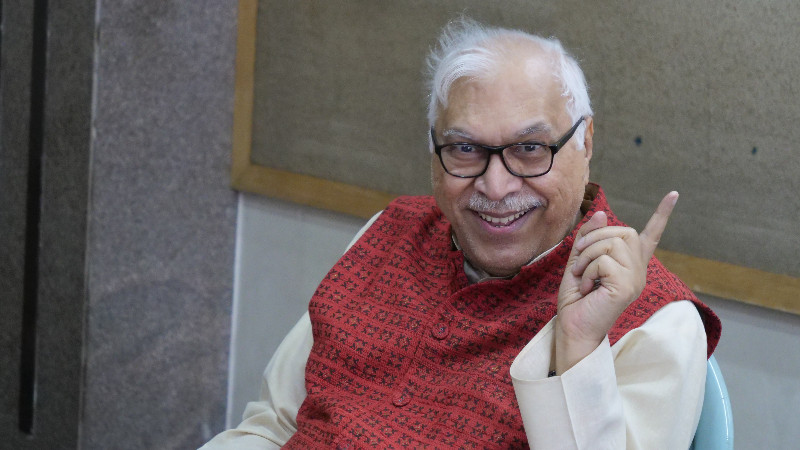
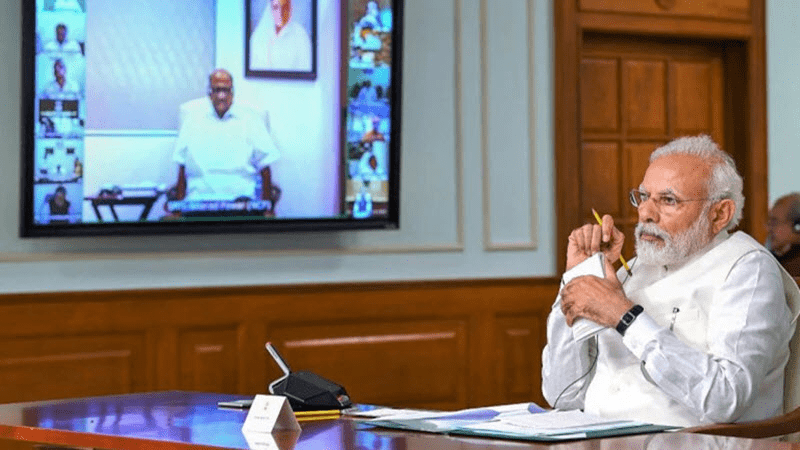
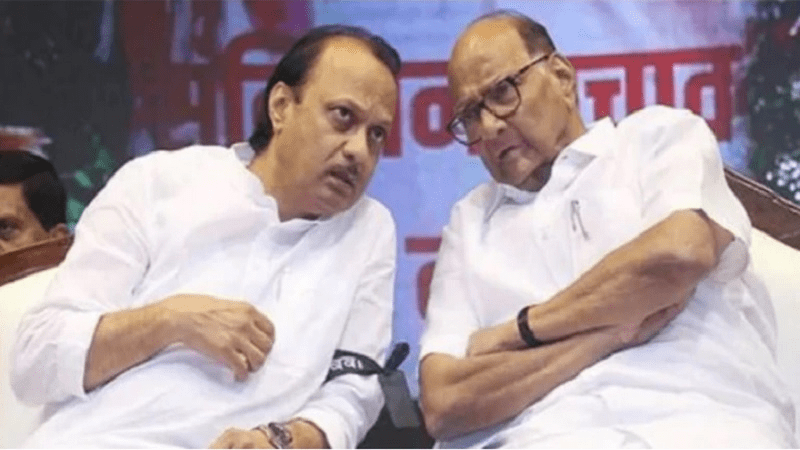
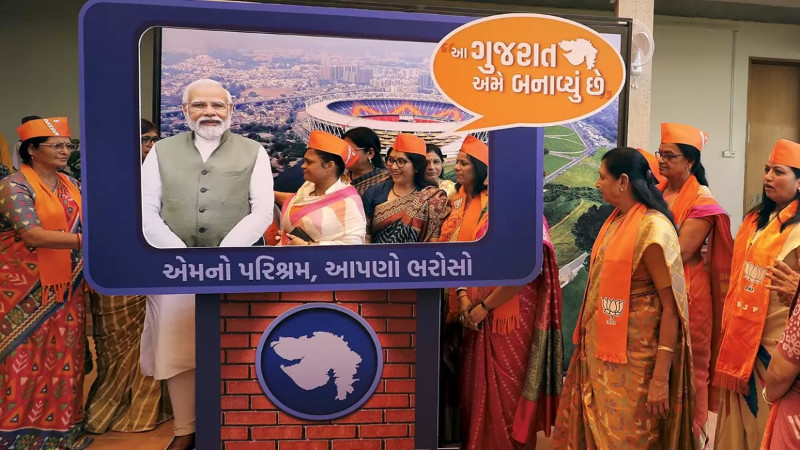
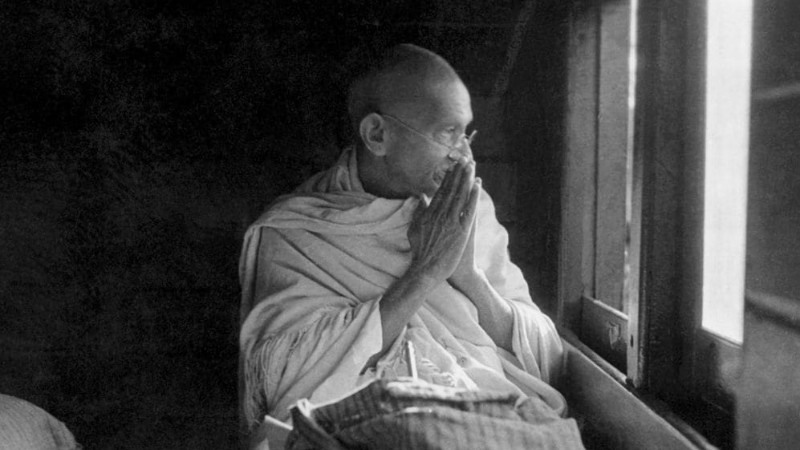
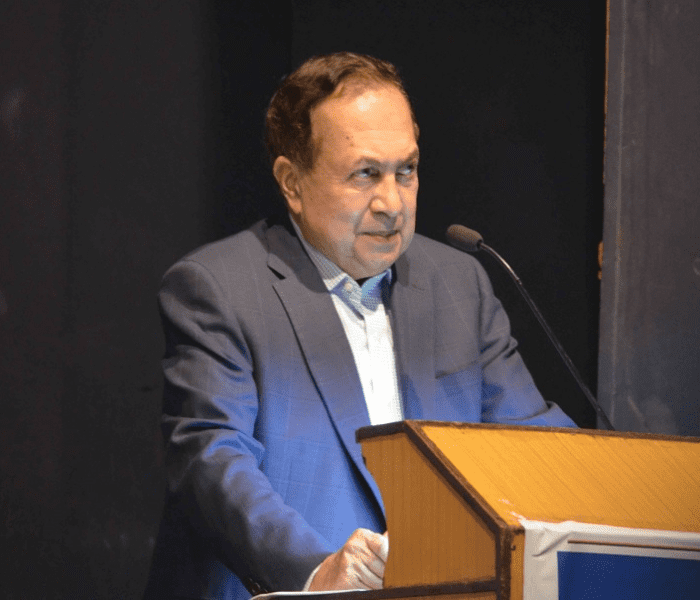
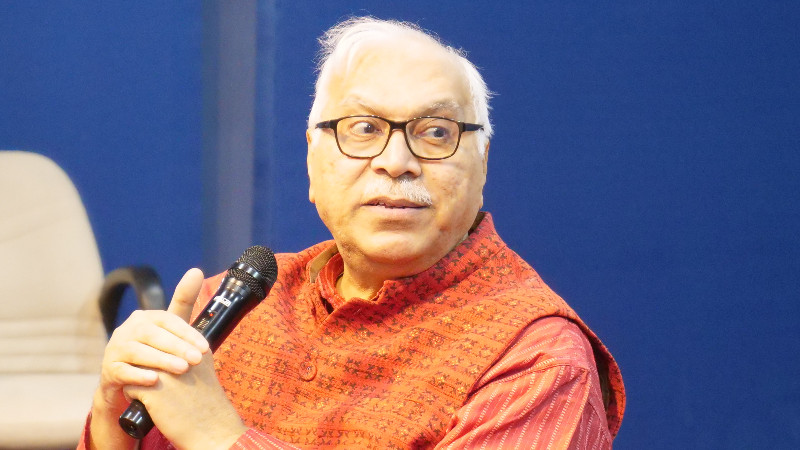

























Add Comment